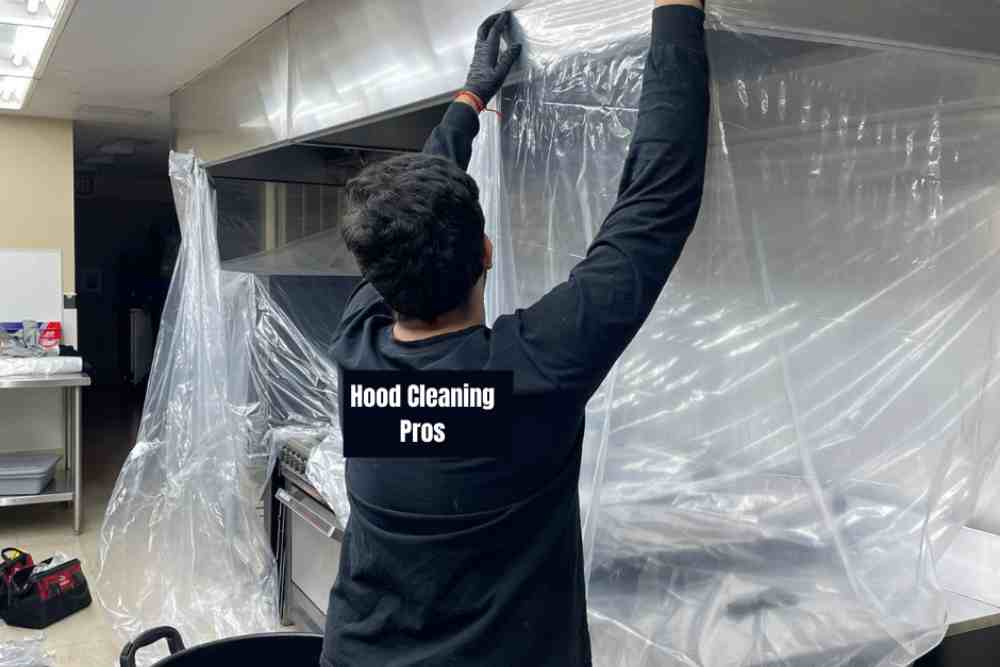Table of Contents
- Grease Fire Prevention with Periodic Hood Cleaning
- The Importance of Hood Cleaning in Grease Fire Prevention
- The Process of Hood Cleaning
- The Benefits of Periodic Hood Cleaning
- 1. Enhanced Fire Safety
- 2. Compliance with Fire Codes and Regulations
- 3. Improved Air Quality
- 4. Extended Equipment Lifespan
- 5. Enhanced Efficiency
- Examples, Case Studies, and Statistics
- Example 1: Restaurant X
- Case Study: ABC Kitchen
- Statistics:
- Frequently Asked Questions
- 1. How often should hood cleaning be performed?
- 2. Can I clean the hood myself?
Grease Fire Prevention with Periodic Hood Cleaning

Grease fires are a serious hazard in commercial kitchens, causing significant damage and posing a threat to the safety of employees and customers. One effective way to prevent grease fires is through periodic hood cleaning. In this article, we will explore the importance of hood cleaning in grease fire prevention, the process of hood cleaning, and the benefits it offers to businesses. We will also provide examples, case studies, and statistics to support our points.
The Importance of Hood Cleaning in Grease Fire Prevention
Commercial kitchens generate a significant amount of grease and oil during cooking processes. Over time, this grease accumulates in the kitchen hood and exhaust system, creating a highly flammable environment. If a grease fire ignites in the hood or exhaust system, it can quickly spread to other parts of the kitchen, leading to a catastrophic fire.
Regular hood cleaning is crucial in preventing grease fires. By removing the built-up grease and oil, the risk of ignition is significantly reduced. Additionally, a clean hood and exhaust system allow for proper airflow, preventing the accumulation of flammable vapors. This not only reduces the risk of fire but also improves the overall air quality in the kitchen, creating a safer and healthier environment for employees.
The Process of Hood Cleaning
Hood cleaning involves a thorough and systematic cleaning of the kitchen hood and exhaust system. It is recommended to hire professional hood cleaning services to ensure the job is done correctly and efficiently. The process typically includes the following steps:
- Inspection: A professional hood cleaner will inspect the hood and exhaust system to assess the level of grease buildup and identify any potential issues.
- Preparation: The area surrounding the hood is covered to protect other surfaces from cleaning chemicals and debris.
- Disassembly: The hood and exhaust system components, such as filters, ducts, and fans, are disassembled to allow for a thorough cleaning.
- Cleaning: The hood cleaner uses specialized tools and cleaning agents to remove grease and oil from all surfaces, including the hood, filters, ducts, and fans.
- Inspection and Reassembly: Once the cleaning is complete, the hood and exhaust system components are inspected again to ensure they are free from grease and properly reassembled.
- Certification: A reputable hood cleaning service will provide a certification after the cleaning process, indicating that the hood and exhaust system meet industry standards.
It is important to note that hood cleaning should be performed on a regular basis, as recommended by local fire codes and regulations. The frequency of cleaning depends on the type of cooking processes, the volume of cooking, and the specific requirements of the kitchen.
The Benefits of Periodic Hood Cleaning
Periodic hood cleaning offers numerous benefits to businesses beyond grease fire prevention. Let’s explore some of these benefits:
1. Enhanced Fire Safety
Regular hood cleaning significantly reduces the risk of grease fires, protecting the kitchen, employees, and customers from potential harm. By removing the flammable grease buildup, businesses can minimize the chances of a catastrophic fire and the resulting damage.
2. Compliance with Fire Codes and Regulations
Many jurisdictions have specific fire codes and regulations that require commercial kitchens to maintain clean and functional hood and exhaust systems. By adhering to these regulations through periodic hood cleaning, businesses can avoid penalties and ensure the safety of their operations.
3. Improved Air Quality
A clean hood and exhaust system allow for proper ventilation, reducing the accumulation of smoke, odors, and harmful airborne particles. This improves the overall air quality in the kitchen, creating a healthier environment for employees and customers.
4. Extended Equipment Lifespan
Grease buildup in the hood and exhaust system can lead to corrosion and damage to the equipment. Regular cleaning helps prevent these issues, extending the lifespan of the hood, filters, ducts, and fans. This, in turn, reduces maintenance and replacement costs for businesses.
5. Enhanced Efficiency
A clean hood and exhaust system allow for better airflow, improving the efficiency of the ventilation system. This can result in energy savings and reduced utility costs for businesses.
Examples, Case Studies, and Statistics
Let’s take a look at some examples, case studies, and statistics that highlight the importance of periodic hood cleaning in grease fire prevention:
Example 1: Restaurant X
Restaurant X, a popular eatery in a busy city, neglected regular hood cleaning for several years. One day, a grease fire ignited in the hood and quickly spread to the kitchen. The fire caused extensive damage to the restaurant, resulting in a temporary closure and significant financial losses. The incident could have been prevented with proper hood cleaning.
Case Study: ABC Kitchen
ABC Kitchen, a large restaurant chain, implemented a strict hood cleaning schedule across all its locations. Over a five-year period, the chain experienced zero grease fire incidents, ensuring the safety of its employees and customers. The investment in periodic hood cleaning paid off by preventing potential disasters and maintaining a positive brand reputation.
Statistics:
- According to the National Fire Protection Association (NFPA), an estimated 7,410 structure fires in eating and drinking establishments were reported each year between 2014 and 2018 in the United States.
- Grease, fats, and oils were the leading factors contributing to the ignition of these fires, accounting for 30% of the incidents.
- The NFPA also reported that failure to clean was a factor in 22% of the structure fires in eating and drinking establishments.
- A study conducted by the University of Texas found that regular hood cleaning reduced the risk of grease fires by 75%.
For professional kitchen exhaust hood cleaning services in Ontario, visit Ontario Hood Cleaning.
Frequently Asked Questions

1. How often should hood cleaning be performed?
Hood cleaning should be performed on a regular basis, as recommended by local fire codes and regulations. The frequency of cleaning depends on factors such as the type of cooking processes, the volume of cooking, and the specific requirements of the kitchen. It is best to consult with a professional hood cleaning service to determine the appropriate cleaning schedule for your business.
2. Can I clean the hood myself?
While it is possible to clean the hood yourself, it is highly recommended to hire professional hood cleaning services. Professionals have the necessary expertise, tools, and cleaning agents to ensure a thorough and effective cleaning. They also understand the specific requirements and regulations related to hood cleaning, ensuring compliance and safety.
3. What are the consequences of not cleaning the kitchen hood regularly?
Not cleaning the kitchen hood regularly can lead to a buildup of grease, which increases the risk of a grease fire. It can also result in poor air quality, non-compliance with fire safety regulations, and potential closure of the kitchen.
4. How long does it take to clean a kitchen hood?
The time required to clean a kitchen hood depends on various factors, such as the size of the hood, the level of grease buildup, and the complexity of the system. On average, professional hood cleaning services can complete the job within a few hours.
5. Are there any regulations regarding kitchen hood cleaning?
Yes, many jurisdictions have specific regulations regarding kitchen hood cleaning. These regulations aim to ensure fire safety and maintain proper ventilation in commercial kitchens. It is essential to comply with these regulations to avoid penalties or closure.
Summary
Regular cleaning of the kitchen hood is crucial in preventing grease fires and maintaining a safe and healthy environment in commercial kitchens. By removing grease buildup, improving air quality, and complying with fire safety regulations, regular hood cleaning plays a vital role in preventing accidents and ensuring the smooth operation of a kitchen. Hiring professional hood cleaning services offers expertise, convenience, and comprehensive cleaning, leading to increased equipment lifespan and peace of mind for restaurant owners and managers. Remember, prevention is always better than dealing with the aftermath of a grease fire.
- Grease Fire Prevention with Periodic Hood Cleaning
- hood cleaning
- kitchen exhaust cleaning
- restaurant hood cleaning






